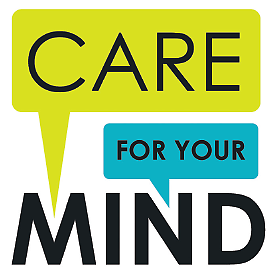Blog Brings Doctors, Patients Together to Address MH Issues
Abstract
An online forum helps clinicians and patients become better advocates during a period of dramatic change in the U.S. health care system.

As preparations for the Affordable Care Act (ACA) rev up as more of the law goes into effect, some patients with mental illness and the clinicians who treat them are making sure that their voices are being heard—particularly by each other.
One vehicle they are using to communicate their needs and concerns is the Care for Your Mind (CFYM) blog, an online forum for people with mood disorders—along with their families and psychiatrists—to discuss the mental health care system and changes that may affect them under health care reform.
“Unfortunately, people living with mental illness do not have the political clout to address changes in their health care. Their voices are often stigmatized or dismissed,” said William Gilmer, M.D., a mood disorder specialist and an associate professor of clinical psychiatry at Feinberg School of Medicine at Northwestern University. “CFYM provides an opportunity for mental health public-policy discussions between clinicians, patients, and other interested constituents so that we, as a unit, may provide the best insight to key stakeholders and lawmakers,” he explained to Psychiatric News. Gilmer stressed that dialogue between all parties is important to ensure that the top priorities of those living with psychiatric disorders are met.
Launched May 1, CFYM is a joint venture by the Depression and Bipolar Support Alliance (DBSA) and Families for Depression Awareness (FFDA).
The blog has had close to 5,500 visitors, including 1,500 who arrived at the site via Facebook or Twitter referrals. “We wanted the CFYM blog to be accessible on as many platforms as possible—including Facebook and Twitter—in order to reach the masses of those most affected by mood disorders,” said DBSA President Allen Doederlein, who noted that he has had a mood disorder diagnosis since age 17. He explained that the voices of people with mood disorders as well as the people who care for them need to be front and center in this transition period for the health care system.
According to the National Institute of Mental Health, mood disorders affect 21 million people in the United States annually, are linked to 90 percent of the nation’s suicides, and cost $23 billion a year in lost workdays. Despite the prevalence of these illnesses and the serious sequelae, only about half who need care receive adequate treatment.
Susan Weinstein, J.D., director of programming and marketing for the FFDA, told Psychiatric News, “We are looking at the Affordable Care Act to open a lot of doors for people to get mental health care access. After we achieve access, then we are seeking quality.”
Weinstein said that some of the issues often discussed on CFYM concern inadequate access to medication and health care providers, which is often amplified by geographical limitations, language barriers, and cultural challenges. “So we are really addressing a set of complex issues that our health care system is currently approaching,” she said.
Cheryl Magrini, Ph.D., vice president of the DBSA Board of Directors, said the blog provides a wealth of valuable information. “The ACA can be so confusing….I’m finally learning about what it means for people to get access to insurance and what actions to take that will lead us down the quickest road to access it,” she told Psychiatric News. Magrini, who said she was diagnosed with bipolar I disorder in 2006, explained that she appreciates the blog for not being a platform for complaints by those with mood disorders or a “you [as a patient] should do this” website for psychiatric experts. “It is a true place for dialogue and conversation between patient, psychiatrist, and legislator,” she said.
As for Gilmer, he said that physicians should be mindful of the intangible things that affect everyday lives of patients. “I think that clinicians should go to the website for issues that are concerns for our patients,” he said. “It helps us, as clinicians, to become better advocates and to help our patients become better advocates for themselves during this transitional period of our health care system.” ■
Information about Care for Your Mind is posted at http://careforyourmind.org/.



